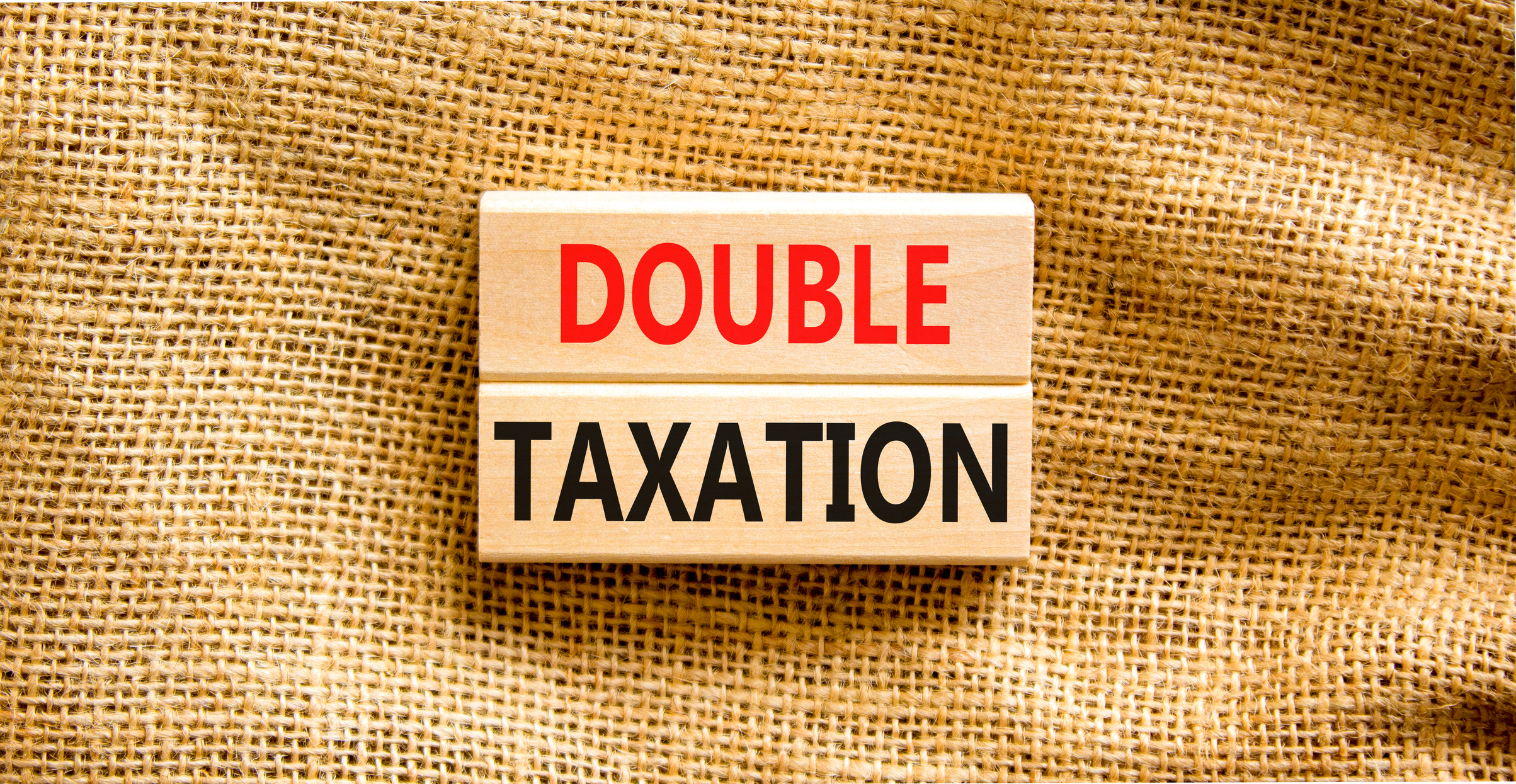States With the Highest Powerball Taxes
If you end up with the winning Powerball numbers, these states will take the biggest tax bite out of your payout.


Profit and prosper with the best of Kiplinger's advice on investing, taxes, retirement, personal finance and much more. Delivered daily. Enter your email in the box and click Sign Me Up.
You are now subscribed
Your newsletter sign-up was successful
Want to add more newsletters?

Delivered daily
Kiplinger Today
Profit and prosper with the best of Kiplinger's advice on investing, taxes, retirement, personal finance and much more delivered daily. Smart money moves start here.

Sent five days a week
Kiplinger A Step Ahead
Get practical help to make better financial decisions in your everyday life, from spending to savings on top deals.

Delivered daily
Kiplinger Closing Bell
Get today's biggest financial and investing headlines delivered to your inbox every day the U.S. stock market is open.

Sent twice a week
Kiplinger Adviser Intel
Financial pros across the country share best practices and fresh tactics to preserve and grow your wealth.

Delivered weekly
Kiplinger Tax Tips
Trim your federal and state tax bills with practical tax-planning and tax-cutting strategies.

Sent twice a week
Kiplinger Retirement Tips
Your twice-a-week guide to planning and enjoying a financially secure and richly rewarding retirement

Sent bimonthly.
Kiplinger Adviser Angle
Insights for advisers, wealth managers and other financial professionals.

Sent twice a week
Kiplinger Investing Weekly
Your twice-a-week roundup of promising stocks, funds, companies and industries you should consider, ones you should avoid, and why.

Sent weekly for six weeks
Kiplinger Invest for Retirement
Your step-by-step six-part series on how to invest for retirement, from devising a successful strategy to exactly which investments to choose.
Powerball numbers are on many people's minds since the jackpot soared again (it stood at $1.326 billion for the April 6 winning ticket) following another recent Powerball lottery jackpot prize of $1.76 billion.
However, it's important to remember that winning the lottery also means dealing with taxes. In some states, that means your actual payout could be much less than the advertised jackpot.
Although some states won’t tax your Powerball winnings, many states will, and some have higher tax rates than others.
From just $107.88 $24.99 for Kiplinger Personal Finance
Become a smarter, better informed investor. Subscribe from just $107.88 $24.99, plus get up to 4 Special Issues

Sign up for Kiplinger’s Free Newsletters
Profit and prosper with the best of expert advice on investing, taxes, retirement, personal finance and more - straight to your e-mail.
Profit and prosper with the best of expert advice - straight to your e-mail.
Powerball after taxes: Highest lottery tax states
Here are the states with the highest lottery tax rates. (It is important to note that you will also pay federal taxes on your Powerball prize.
Generally, 24% comes off the top for federal income tax. You will likely pay additional tax on your income when you file your return at a rate that depends on your income tax bracket.)
Related: Powerball Jackpot Winner Will Get a Hefty Tax Bill
New York

New York state tax rate on lottery winnings: 10.90%
According to New York state law, if the proceeds from your lottery win are $5,000 or less, the prize payment isn’t considered New York source income.
So smaller prize money amounts won’t be subject to New York income tax. (In New York, “proceeds” are the total amount of the prize minus the cost of the winning ticket.)
Note: A Powerball ticket costs $2 per play.
Maryland

Maryland tax rate on lottery winnings: 8.75%
Maryland will deduct 8.95% of state tax if you’re a resident and your prize exceeds $5,000. If you’re a non-resident, the state tax withholding rate on your lottery winnings will be 8%.
Remember, the state tax is in addition to the 24% initial withholding for federal taxes. Also, you are required to report your lottery winnings on your tax return since the Maryland lottery says prizes from $601 to $5,000 may be taxable.
Washington, DC

Washington, DC tax rate on lottery winnings: 8.5%
Washington, DC, isn't a state. However, according to the District of Columbia’s Office of Lottery and Gaming, winnings over $5,000 are subject to an 8.5% tax rate for District income tax.
However, under Washington DC regulations, all lottery winnings that exceed $600 are reported to the District Office of Tax and Revenue.
Honorable Mentions: Oregon and New Jersey
Oregon tax rate on lottery winnings: 8%
Oregon withholds an 8% state tax on lottery prizes of $1,500 or more. So, your lottery prize payout comes minus the 8% state tax. The state reminds taxpayers that any large lottery prize is considered taxable income.
However, the Oregon Lottery provides guidance on its website regarding lump sum vs. annuity payouts and taxes.
“An annuity option pays out a larger amount of dollars over 30 years, but each annuity payment would be subject to tax. A one-time lump sum cash payment pays out less overall but, as it comes in a single payment, gets taxed at payout.”
New Jersey tax rate on lottery winnings: Up to 8%
According to the state’s lottery, New Jersey taxes lottery prizes of more than $10,000 and up to $500,000 at a rate of 5%.
But since we’re talking about a massive Powerball jackpot, the state’s higher 8% withholding tax rate applies to a lottery prize greater than $500,000.
Winners receive a Form W2-G at the end of the year. That form shows the amount of lottery prize winnings that should be reported as income and the amount of federal and state taxes withheld.
Powerball numbers
To win the Powerball jackpot, you must match six numbers from the Powerball drawing. The drawing takes place every Monday, Wednesday, and Saturday at 10:59 p.m. ET.
You can find the winning numbers from the last drawing on Powerball's website. If no one matches all six numbers, the Powerball rolls, and the jackpot amount increases.
Related Content
Profit and prosper with the best of Kiplinger's advice on investing, taxes, retirement, personal finance and much more. Delivered daily. Enter your email in the box and click Sign Me Up.

Kelley R. Taylor is the senior tax editor at Kiplinger.com, where she breaks down federal and state tax rules and news to help readers navigate their finances with confidence. A corporate attorney and business journalist with more than 20 years of experience, Kelley has helped taxpayers make sense of shifting U.S. tax law and policy from the Affordable Care Act (ACA) and the Tax Cuts and Jobs Act (TCJA), to SECURE 2.0, the Inflation Reduction Act, and most recently, the 2025 “Big, Beautiful Bill.” She has covered issues ranging from partnerships, carried interest, compensation and benefits, and tax‑exempt organizations to RMDs, capital gains taxes, and energy tax credits. Her award‑winning work has been featured in numerous national and specialty publications.
-
 Quiz: Do You Know How to Avoid the "Medigap Trap?"
Quiz: Do You Know How to Avoid the "Medigap Trap?"Quiz Test your basic knowledge of the "Medigap Trap" in our quick quiz.
-
 5 Top Tax-Efficient Mutual Funds for Smarter Investing
5 Top Tax-Efficient Mutual Funds for Smarter InvestingMutual funds are many things, but "tax-friendly" usually isn't one of them. These are the exceptions.
-
 AI Sparks Existential Crisis for Software Stocks
AI Sparks Existential Crisis for Software StocksThe Kiplinger Letter Fears that SaaS subscription software could be rendered obsolete by artificial intelligence make investors jittery.
-
 How to Open Your Kid's $1,000 Trump Account
How to Open Your Kid's $1,000 Trump AccountTax Breaks Filing income taxes in 2026? You won't want to miss Form 4547 to claim a $1,000 Trump Account for your child.
-
 In Arkansas and Illinois, Groceries Just Got Cheaper, But Not By Much
In Arkansas and Illinois, Groceries Just Got Cheaper, But Not By MuchFood Prices Arkansas and Illinois are the most recent states to repeal sales tax on groceries. Will it really help shoppers with their food bills?
-
 7 Bad Tax Habits to Kick Right Now
7 Bad Tax Habits to Kick Right NowTax Tips Ditch these seven common habits to sidestep IRS red flags for a smoother, faster 2026 income tax filing.
-
 New Plan Could End Surprise Taxes on Social Security 'Back Pay'
New Plan Could End Surprise Taxes on Social Security 'Back Pay'Social Security Taxes on Social Security benefits are stirring debate again, as recent changes could affect how some retirees file their returns this tax season.
-
 Living in One State, Working in Another: How to Avoid a Tax Season Headache
Living in One State, Working in Another: How to Avoid a Tax Season HeadacheState Tax Living and working in two states can take a heavy toll on your paycheck and give you a headache come tax time. Here's what to know.
-
 10 Cheapest Places to Live in Colorado
10 Cheapest Places to Live in ColoradoProperty Tax Looking for a cozy cabin near the slopes? These Colorado counties combine reasonable house prices with the state's lowest property tax bills.
-
 New Gambling Tax Rule Impacts Super Bowl 2026 Bets
New Gambling Tax Rule Impacts Super Bowl 2026 BetsTaxable Income When Super Bowl LX hype fades, some fans may be surprised to learn that sports betting tax rules have shifted.
-
 Should You Do Your Own Taxes This Year or Hire a Pro?
Should You Do Your Own Taxes This Year or Hire a Pro?Taxes Doing your own taxes isn’t easy, and hiring a tax pro isn’t cheap. Here’s a guide to help you figure out whether to tackle the job on your own or hire a professional.